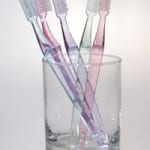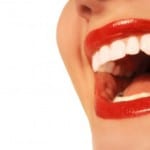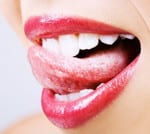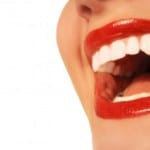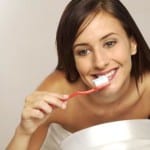 Start July with a bang by looking after your mouth by following our tips for great teeth and gums:
Start July with a bang by looking after your mouth by following our tips for great teeth and gums:
The first step to keeping your teeth looking great is by watching the colour of what you eat and drink. Red wine, coffee, black tea and cigarettes can all have a negative impact on the colour of your teeth. The best way to avoid staining is to brush your teeth after having anything that is likely to stain them. Using a bleaching agent recommended by your dentist can also help.
A healthier diet
You can also avoid problems with your teeth by cutting back on sugary food and drinks. Sugar can cause plaque, which leads to issues such as tooth decay, cavities and gum disease. Foods that are good for teeth include apples, celery and carrots, which help clean teeth due to being crisp and firm. Drinking water during the day also helps teeth by flushing out bacteria from the mouth and reducing the risk of cavities and gum disease.
At City Dental in Leeds we advise replacing your toothbrush every three months at most to ensure that your mouth is being properly cleaned. Using an old brush will mean that bacteria is being moved from the brush to your mouth.
Brush your teeth
Most of us spend just half a minute brushing our teeth, instead of the recommended 2 minutes. Start timing yourself while brushing your teeth and divide it into 30 seconds each for the front and back of both the top and bottom sets if that helps. It is also good to get into a regular routine with flossing. If you begin and end at the same point every time you floss, you can be sure that all every tooth has been cleaned. If you find it difficult to use floss you may find it helpful to get a floss holder.





